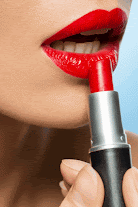Great hair has the power to boost confidence and make a lasting impression. Whether you're aiming for sleek, straight locks, bouncy curls, or perfectly styled waves, hair styling tools like straighteners, flat irons, curling irons, and hair dryers are your trusted allies. In this comprehensive guide, "Effortless Elegance: Unlocking the Potential of Hair Styling Tools," we'll explore the world of these essential hair gadgets. From understanding the technology behind them to mastering their usage, we'll help you achieve salon-quality results from the comfort of your home.
Section 1: The Science Behind Hair Styling Tools
Before we dive into the art of hairstyling, it's crucial to understand the science behind these tools. Each device operates differently, and comprehending their mechanisms will empower you to use them effectively.
1.1 The Straightener and Its Magic
Hair straighteners, also known as flat irons, work by using heat to break the hydrogen bonds in your hair. This process temporarily straightens the hair shaft. We'll delve into the science of hair straighteners, discuss different plate materials, and offer tips on selecting the right one for your hair type.
1.2 Curling Irons: The Secret to Luxurious Locks
Curling irons use heat to create beautiful curls or waves. We'll explore the various types of curling irons, barrel sizes, and heat settings. Additionally, we'll provide step-by-step instructions on achieving different curl styles, from loose beach waves to tight ringlets.
1.3 The Art of Blow-Drying
Hair dryers use forced air and heat to evaporate moisture from wet hair. We'll discuss the importance of proper blow-drying techniques, the different nozzle attachments, and how to protect your hair from heat damage during the process.
Section 2: Choosing the Right Tool for Your Hair
Now that we understand the science behind these tools, it's time to choose the right one for your hair type and styling needs. Making the right selection is crucial for achieving salon-quality results.
2.1 Hair Types and Styling Tools
Different hair types require different approaches. We'll explore how to select the ideal tool based on your hair's texture, thickness, and length. Whether you have fine, curly, or thick hair, we've got you covered.
2.2 Heat Settings and Temperature Control
Understanding temperature settings is vital to prevent hair damage. We'll guide you on how to adjust heat settings according to your hair type and the style you want to achieve. You'll learn when to use lower or higher temperatures and why.
2.3 Plate Materials and Their Impact
The material of the plates on your straightener matters. We'll break down the differences between ceramic, titanium, and tourmaline plates, helping you make an informed choice that aligns with your styling goals.
Section 3: Mastering the Art of Styling
Now that you've selected the right tool, it's time to master the art of hairstyling. We'll provide step-by-step instructions for achieving different hairstyles using straighteners, curling irons, and hair dryers.
3.1 Straight Hair: Silky and Smooth
Achieving perfectly straight hair requires more than just running a straightener through your locks. We'll share techniques for creating a sleek, straight look without causing damage or frizz.
3.2 The Magic of Curls and Waves
Curls and waves can add volume and personality to your hair. We'll provide detailed instructions on using curling irons to create a variety of curls, from loose to tight, and explore how to maintain those beachy waves that everyone loves.
3.3 Blow-Drying Like a Pro
A salon-quality blowout can make you feel like a superstar. We'll walk you through the steps for achieving that professional blow-dried look, including techniques for adding volume, smoothness, or a natural bounce to your hair.
Section 4: Hair Health and Maintenance
Styling tools, while effective, can be harsh on your hair if not used correctly. In this section, we'll discuss how to maintain the health of your hair while using these gadgets.
4.1 Heat Protection: Your Hair's Best Friend
Using heat protection products is essential to shield your hair from damage. We'll recommend top-quality heat protectants and offer tips on how to apply them effectively.
4.2 Cleaning and Maintaining Your Tools
Proper tool maintenance ensures their longevity and performance. We'll provide guidance on cleaning and caring for your straighteners, curling irons, and hair dryers to keep them in tip-top shape.
4.3 Preventing Heat Damage
Heat damage is a common concern when using styling tools regularly. We'll share strategies for minimizing heat-related damage, such as avoiding excessive heat exposure and using protective techniques.
Hair Styling Tools Can Transform Your Hair
Unlocking the potential of hair styling tools can transform your everyday look and boost your confidence. Whether you prefer silky straight hair, luscious curls, or a voluminous blowout, these tools offer endless styling possibilities. With a solid understanding of their science, proper tool selection, mastering the art of styling, and prioritizing hair health, you can achieve salon-quality results at home. So, embrace the world of hair styling tools and let your hair shine with effortless elegance.























.png)





















